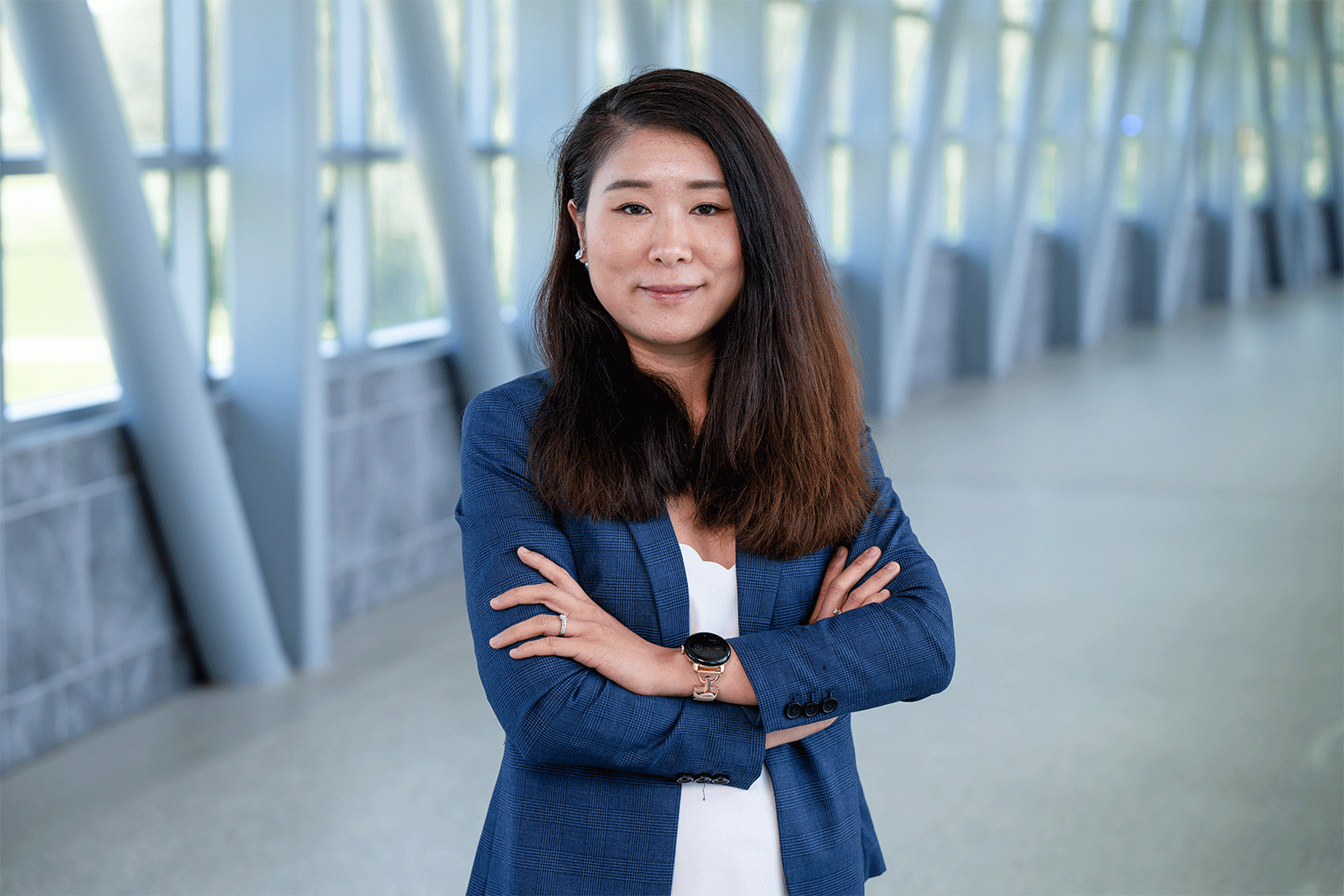California, Clarion, Edinboro, Global Online
PennWest professor’s groundbreaking research targets microplastic pollution
Study on soil-biodegradable mulches earns selection as the Agricultural and Resource Economics Review’s featured article

Although plastic pollution is often associated with oceans and waterways, PennWest economics professor Dr. Jingze Jiang is drawing attention to a less visible but equally urgent crisis – microplastic contamination in agricultural soil.
Dr. Jiang, alongside co-authors Thomas Marsh and Eric Belasco, recently published “Optimizing Microplastic Pollution in a Terrestrial Environment: A Case for Soil-Biodegradable Mulches” in the Agricultural and Resource Economics Review. The paper was selected as the highlighted article by the highly regarded, peer-reviewed journal.
Their research presents the first dynamic economic model to analyze the adoption of soil-biodegradable mulches (BDMs) as a sustainable alternative to conventional plastic films commonly used in agriculture.
“Our research is crucial because it addresses the severe and growing problem of plastic pollution in terrestrial environments,” said Dr. Jiang. “Many people associate plastic pollution with our oceans, but studies show that soil contamination is estimated to be four to 23 times higher.”
Plastic mulches – particularly polyethylene films – have become widespread in farming due to their productivity benefits. However, their long-term breakdown into microplastics alters soil structure, reduces its ability to retain water, and disrupts vital microbial communities.
Dr. Jiang’s model evaluates how biodegradable alternatives can help reduce this long-term environmental impact. The research not only quantifies the benefits of BDMs but also proposes economic frameworks to guide policymakers in encouraging sustainable adoption.
“Our findings show that biodegradable mulches can substantially reduce long-term plastic pollution, and we offer a framework for policymakers to use economic incentives to encourage their use.” Jiang said. “This is a critical step toward fostering sustainable agricultural practices and mitigating global plastic pollution.”
Beyond her research, Dr. Jiang is passionate about mentoring the next generation of economists and scientists. She prioritizes active research not only to stay at the forefront of her field, but also to bring cutting-edge knowledge into the classroom.
“By pioneering research, I’m able to bring the most up-to-date knowledge directly to my students and pass on my research techniques and thought processes,” she said. “My passion for research drives me to supervise student research, even at the undergraduate level.”
That commitment has already produced impressive results. Dr. Jiang recently supervised two undergraduate students whose work was selected for presentation at the prestigious Federal Reserve Bank of Cleveland research conference.
“Seeing students with no prior research experience rise to present at such a prominent platform made me excited about sharing my academic rigor and thought process with them,” she said. “In an age where AI is trained on known knowledge, training my students in the skills needed to solve unknown problems will prepare them for the future workforce.”